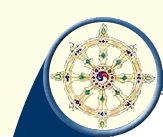Sustainable Development Action Lab Project Example
Health and Environmental Challenges in Urban Nepal
(Siddharthanagar Municipalty, Western Nepal)
Citizen Science Approach to Monitoring of Water quality, Air quality, and Urban Eco-systems
|
 |
|
SUSTAINABLE DEVELOPMENT ACTION LAB (SDAL) CONCEPT
Question: What is a Sustainable Development Action Lab (SDAL)?
Answer:
It is a four-step interdisciplinary learning process that is being developed as pilot experiments
[Fall 2016: Econ 451/551; Spring 2017: Econ 409, Fall 2017: Econ 395/595, and Fall 2018: Econ 369] , where we analyze, deliberate, and come up with solutions.
• Analyze: Analyzing the real-world data from the ground.
• Deliberate: Collaboratively work with other students (graduate and undergraduate) in an interdisciplinary fashion to offer practical solutions:
sustainable technologies, awareness curricular interventions, citizen science methods, riparian habitat conservation designs or evidence-based public policy prescriptions.
• Implement: If interested, help the student club/group in their effort to implement some of the solutions on the ground in collaboration with our international partners. Or join the Himalayan Study Abroad Program and travel to Nepal to implement it.
• Disseminate: Research outcome (e.g., research posters) can be presented at the on-and-off campus conferences.
For SDAL Concept Brochure, Click here
Fall 2019
Econ 369*: Problem-based Learning Using Data Analytics
Health & Environment in Urban Nepal
(Analytical Approach to Problem Solving)
Instructor: Professor Alok K. Bohara; GA: Thaneshwar Paneru
|
ECON *369 (3, may be repeated twice Δ)
Interdisciplinary STEM course examining real world problems like those faced by underserved communities (poverty, environment, education, and health) using empirical tools, public policy perspectives. Students use data analytical tools to explore implementable solutions. Topics vary.
Prerequisite: STAT 145. * = graduate credit.
Course Material:
For Course Flyer, CLICK HERE
For course syllabus, CLICK HERE
Fall 2019 Undergraduate Research Highlights
TAKING CLASS-ROOM TO THE FIELD
Air Pollution Monitoring & Health Impact: An International Collaboration in Community Engaged Research, Citizen Science & Public Policy
[Nepal Study Center (UNM) & PNMF Siddharthanagar, Nepal]
Summary Presentation Slides Click Here
Environmental Dashboard Click Here
Fall 2018
Econ 369*: Problem-based Learning Using Data Analytics
Health & Environment in Urban Nepal
(Analytical Approach to Problem Solving)
Instructor: Professor Alok K. Bohara; GA: Niraj Khatiwada
|
ECON *369 (3, may be repeated twice Δ)
Interdisciplinary STEM course examining real world problems like those faced by underserved communities (poverty, environment, education, and health) using empirical tools, public policy perspectives. Students use data analytical tools to explore implementable solutions. Topics vary.
Prerequisite: STAT 145. * = graduate credit.
Course Material:
For Course Flyer, CLICK HERE
For course syllabus, CLICK HERE
Impact Abroad Community Engage Research Project Themes, CLICK HERE
Study Abroad Material:
Study Abroad Brochure : CLICK HERE
Study Abroad Syllabus : CLICK HERE
Study Abroad Flyer: CLICK HERE
For Current and Past Himalayan Study Abroad Components (Trip Details, Comunity Projects, Research posters, Conferences), CLICK HERE
NSC Action Lab Supported Thesis:
Environmental Management Through Citizen Science: CLICK HERE
Standard Operating Procedure (SOP) and Protocol for Environmental Monitoring (Air, Water, weather, river): CLICK HERE
Urban Wild Life Refuge (Eco-Park and Bird Sanctuary): CLICK HERE
Fall 2018 Undergraduate Research Highlights
Group 1: Impacts of Sanitation and Hygiene on Health in Nepal
Jeffrey Vescovi, Melissa Martinez, Andres Quijada
Research Poster
Group 2 : Behavior and Risk of E.Coli
Miles Brooks, Dinip Rijal, Pierre Zeman
Research Poster
Group 3 : Waste Management and Education
Thomas Henderson, Ryan Jones, Tatianna Perlinski
Research Poster
Group 4 : Exploring Air Quality Effects and Patterns in Siddharthanagar
Calvin McKinley, Brian Olivas, Geoffrey Lawrence, John Gabaldon
Research Poster
Group 5 : Effect of Water Quality and Treatment on Health Outcomes in Siddharthanagar
Jaocb Moya, Hannah Fritsch, Diana Demusaj
Research Poster
Group 6 : A study of self-reported air pollution effect and respiratory well-being
Adam Depies. Jackson Kniebuehler, Simon Torstensson
Research Poster
For past course related details, see below
Fall 2017
Econ 395/595: Problem-based Learning: Health & Environment in Urban Nepal
(Analytical Approach to Problem Solving)
Instructor: Professor Alok K. Bohara; GA: Niraj Khatiwada
|
COURSE SYLLABUS
ECON 395/595 Course Flyer Click here
ECON 395/595 Course Syllabus Click here
Fall 2017 Undergraduate Research Highlights
Group 1: The Impact of Waste Disposal Methods on Water Quality in Siddharthnagar, Nepal
Aanchal Pradhan, May Souriyanyong, and Lauren Auer
Research Poster
Group 2: Sanitation and Hygiene Approaches and Their Impact on Health– A Case Study in Rural Nepal
Samriti Jain, Dayna Diamond, Krystofer Sage Cox
Research Poster
Group 3: Water Treatment Assessment: How Age and Level of Education Affects Perception of Risk from Water-Borne Diseases
Clara Burgeles, Thomas Farnham, and Thomas Navarrette
Research Poster
Group 4: Are You Current With the Current: The Impact of Education on Willingness to Pay for a Clean River
Katelynne Capener, Sonja Fullilove, Michael Prossnitz
Research Poster
GRADUATE-UNDERGRADUATE MONTHLY MENTORING WORKSHOP
STEM Bridge Initiative:
Creating Collaborative Outreach across Natural Sciences, Social Sciences, and Humanities
As a part of interdisciplinary approach to research, learning, and problem solving, SDAL is conducting four-part research workshop for the Fall 2017. These workshops aim to promote the concept of “problem-driven research, research driven solutions” to
aspiring undergraduate researchers. Doctoral Candidates from Department of Economics and faculty members from other departments will share their research motivation, and analytical techniques in various themes of natural and social sciences.
Graduate Mentoring Group: Rahman, Mandy, Aakrit, Soumi, Samrat, Adnan, & Niraj
Senior Undergraduate Mentors: DeShawn, Aaron, and Jesus
Monthly Workshop Schedule: Click here
Photos of Fall 2017 Sustainable Development Lab Group, Speakers, Workshop Presentations
GOFUNDME
Healthy Environment, Healthy Living: Help UNM Students Make a Lasting Difference in Nepal
by YOGDAN Student Volunteer Group
[Still under development.]
We, a group of University of New Mexico students (YOGDAN –Giving, a volunteer student group), have a unique opportunity to study abroad [ECON 395/595] and make a lasting impact for the people of Nepal. During the course, our goal is to extend the reach of successful New Mexican initiatives to develop and implement a citizen science program in Nepal to encourage Healthy Environment, Healthy Living. The city of Siddharthanagar, located in southern Nepal, serves as an important trading port with India and is the gateway to the old-world heritage site of Lumbini. The Danda River flows along Siddharthanagar and is an integral part of the city. Recent studies, however, have found the Danda River to contain number contaminants, from household and industrial sources, leading to detrimental health and biological impacts. Local industries have also reduced the air quality raising further concerns. Tentative appeal draft. Click here for detail.
Undergraduate Research-related Resources
Crowdfunding Undergraduate Research: Click here
On-Campus Undergradute Research Funding Opportunities: UNM McNair Scholarships
Off-campus Undergraduate Research Funding Opportunities: NSF Research Experience for Undergraduate NSF-STEM
UNM STEM Programs: UNM STEM Programs and Activities
Council on Undergraduate Research: Click here
Service Learning Examples and Resources: EPA's resources UNM RSLP UNM LTER UNM Social Media Group
Citizen Science: Scientific American
Spring 2017
Econ 409: Groundwater Arsenic Hazard and Women’s Health in Two Villages in Nepal
Applied Econometrics
Instructor: Professor Alok K. Bohara; GA: Niraj Khatiwada
|
Original Arsenic Research Project Site Click here
Spring 2017 Undergraduate Research Highlights
Group 1: Awareness to Mitigation: The Impact of Public Awareness Initiatives on Water Filter Adoption
DeShawn Vaughan, Andrew McCants, and Wen Lee
Research Poster
Group 2: Arsenic Anticipation: A Perceived Problem and Preventive Solution
Nick Howard, Justin Richardson, and Yaowen Xu
Research Poster
Group 3: Arsenic Levels, Indoor Pollution, and Frequency of Hospital Visits in Nawalparasi and Rupandehi
Aaron Montano, Jesus Vazquez, and Samriti Jain
Research Poster
Group 4: Water Is Life but Leads to Arsenicosis: The Effect of Arsenic Found in Wells on Women’s Arsenicosis in Nepal
Maxwell Walla, Carrie Adair, and Jonathan Lee
Research Poster
Problem-driven research, research-driven solutions: Groundwater Arsenic and Women's Health
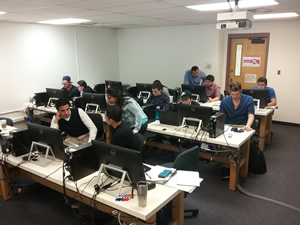
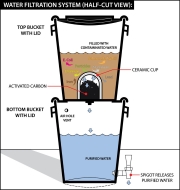
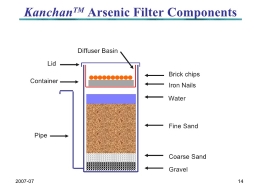

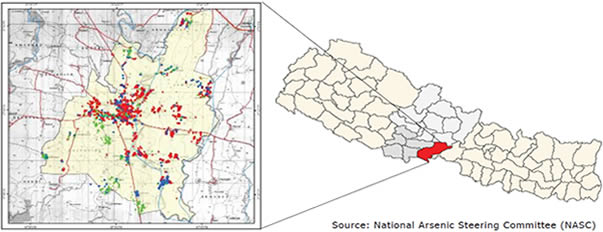
Image Source: Ceramic, Kanchan, and Sono
FILTER SYSTEMS | WATER IS LIFE. (n.d.). Retrieved May 9, 2017, from http://waterislife.com/clean-water/filter-systems
Ngai, T., Dangol, B., Murcott, S., & Shrestha, R. R. (2006). Kanchan arsenic filter. Massachusetts Institute of Technology (MIT) and Environment and Public Health Organization (ENPHO), Kathmandu, Nepal. Retrieved from https://www.bu.edu/sph/files/2016/02/KAF-booklet-2nd-edition-final-Jan06.pdf
Schematic diagram of Sono filter. (n.d.). Retrieved May 9, 2017, from http://www.irinnews.org/photo/200801109/schematic-diagram-sono-filter
|
Fall 2016
(Pilot)
Econ 451/551: Water Quality, Public Health, Sanitation, and Bio-diversity: Building a Long Term Citizen Science Program
Instructor: Dr. Alok K. Bohara
Graduate student mentors: Samrat Kunwar (TA), Soumi Roy Chowdhury, Siobhan Yilmaz, Muhammad Adnan Shahid, and Veeshan Rayamajhee (doctoral students)
Undergraduate students: Biraj Rawal (Engineering), Dianna Spilca (Biology & Political Science), May Souriyanyong (Economics), DeShawn Vaughan (Economics
|
Original Water Quality Research Project Site Click here
Fall 2016 Undergraduate Research Highlights
Final Research Report, Scientific Data Gathering Protocol: Click here
Problem-driven research, research-driven solutions: Waterborne Diseases, Public Awareness, Urban Eco-systems and Citizen Science
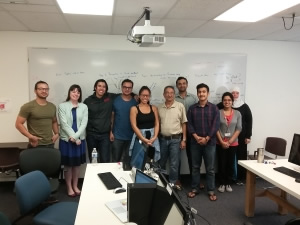
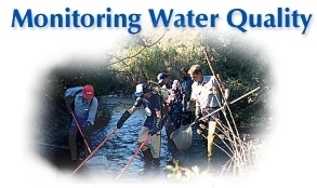
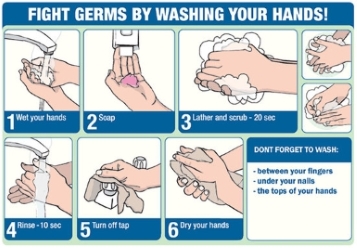
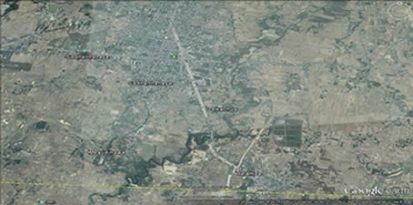
Image Source:
Interventions Mopnitoring Water Quality and Hand Washing
http://www.amrclearinghouse.org/Sub/WATERmonitoring/
http://www.dailykos.com
.
